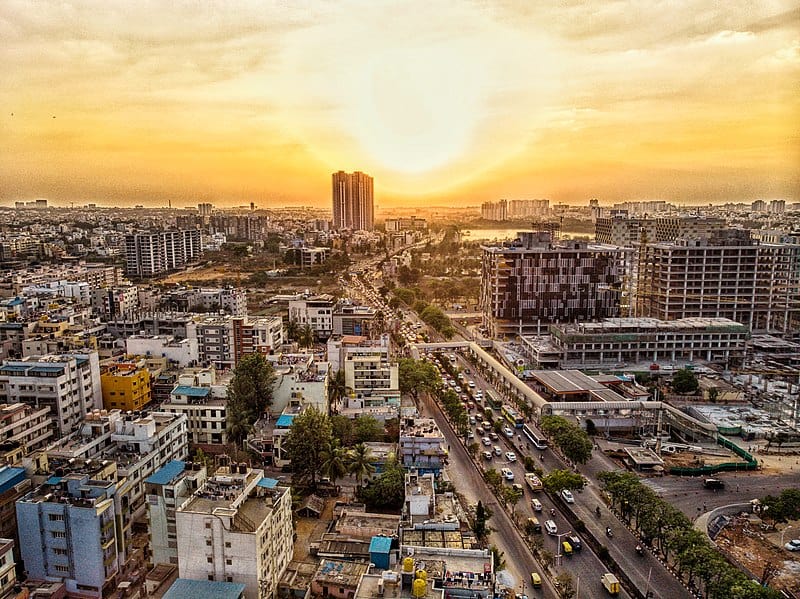Rise in post-COVID brain disorders
Post-COVID-19, there has been a rise in reports of brain disorders, such as Guillain-Barre syndrome, Bell’s palsy, insomnia and other behavioural and cognitive issues, said Bengaluru-based neurologists. Neurological complications affecting the brain seem to be the second most common effect. The SARS-CoV-2 virus could affect the lungs and the brain and lead to many complications, including severe headaches, epilepsy or arterial strokes due to altered clotting mechanisms and cerebral venous strokes, peripheral neuropathy, Bell’s palsy, and Guillain-Barre syndrome (GBS).
On July 22nd, World Brain Day, this year’s theme is “brain health for all”. As part of Karnataka Brain Health Initiative (Ka-Bhi), the Health Department, in association with NIMHANS, will launch a brain health clinic, designed to develop a model for prevention and management of neurological diseases and promote brain health from grassroots level of primary care to tertiary care.
Source: The Hindu
Read More: What’s the toll COVID is taking on mental health?
BBMP promises action on flex boards
The Bruhat Bengaluru Mahanagara Palike (BBMP) has promised to lodge a police complaint, after political leaders began to put up large flex boards that threaten pedestrians and motorists. The high court has ruled that no advertisement boards or flexes are allowed to be displayed in the BBMP limits. Yet, a large number of them have been erected by elected representatives, especially in places such as Vijayanagara and Govindarajanagar, where there are more than 1,000 flexes, a few of which block the footpaths.
Source: Deccan Herald
HC asks BBMP to remove lake encroachments
On Wednesday, the Karnataka High Court directed BBMP to submit a compliance report on removal of encroachments from Subramanyapura and Begur lakes by September 1st. It said that the engineers of BBMP would be deemed suspended if they do not comply in a time-bound manner.
The High Court directed BBMP officers and the tahsildars to carry out a survey and physical marking of the area in a short time and then issue notices to encroachers.
Source: The Times of India, Deccan Herald
Plans to introduce National Education Policy in schools
School Education minister BC Nagesh on Tuesday said the National Education Policy (NEP)-2020 model will be introduced once the learning-recovery programme post COVID-19 is over. Mainstream subjects, such as science, math and humanities will be taught in madrasas too, following the Uttar Pradesh government’s model.
Meanwhile, the Karnataka School Education and Literacy Department has agreed to provide eggs twice a week and 46 days in a year in mid-day meals across the state. The department of school education has announced that eggs, bananas or chikkis (supplementary nutrition) would be included in the midday meals as a part of the Flexibility for Innovative Intervention activity under the PM Poshan Shakti Nirman (midday meals) scheme for students of Classes I-VIII. The eggs should be bought at the school level and the authorities should ensure that quality eggs are distributed.
External agencies will provide eggs at schools where ISKCON supplies midday meals under its Akshaya Patra scheme.
Surprisingly, an NEP position paper on health and well-being claims that providing eggs and meat in schools’ midday meals can lead to “lifestyle disorders” and that 4% of students are “unwilling” to eat eggs. A NIMHANS alumni doctors’ group called the paper, prepared by a group headed by Dr K John Vijay Sagar (head of child and adolescent psychiatry at NIMHANS), “outrageous, outdated, unscientific and frivolous”.
NIMHANS alumni have slammed the position paper and have urged the Director to immediately dissociate the Institute from the “ridiculous report”, calling for the immediate resignation of Dr K John Vijay Sagar. They have also demanded that the position paper should be withdrawn.
Source: Indian Express, The Hindu
NBF’s latest stance on Akrama Sakrama dispute
On Tuesday, the Namma Bengaluru Foundation (NBF) announced a change in its stance on Akrama Sakrama (regularisation) scheme, disappointing members of the Citizens Action Forum (CAF), who were the initial petitioners in the High Court. As things stand, the former does not oppose regularisation, but also do not want to compromise on certain terms related to the scheme.

NBF said that the government can approach the Supreme Court to seek exemption for poor and middle-class families under the scheme. The original petitioners say that NBF decided unilaterally on this without consulting others, making things easy for the government to play around, get the revenue and spoil the concept of planning. Their stand is that the BBMP should be asked to prove that they will avoid any further deviations.
Read More: Multiple faces of Akrama Sakrama argument
Earlier, in 2017, NBF had filed a petition in the Supreme Court and had effected a stay on Akrama Sakrama, which they believed would have enriched builders constructing illegally.
Source: The Hindu
12 posts for revenue collection
To improve revenue tax collection, 12 posts have been created in the BBMP’s revenue department, which aim to collect Rs 5,000 crore from property tax this financial year. Of the 12 posts, 10 are for assistant commissioners (ACs), who will head revenue collection. According to a government circular, 90% of the posts will be filled by promoting assistant revenue officers (AROs) and the remaining 10% from the cadre of the Karnataka Municipal Administrative Service. The revenue department has also got a new post titled special officer (deputy revenue officer cadre).
Source: Deccan Herald
[Compiled by Revathi Siva Kumar]